Posted on 5/29/2024
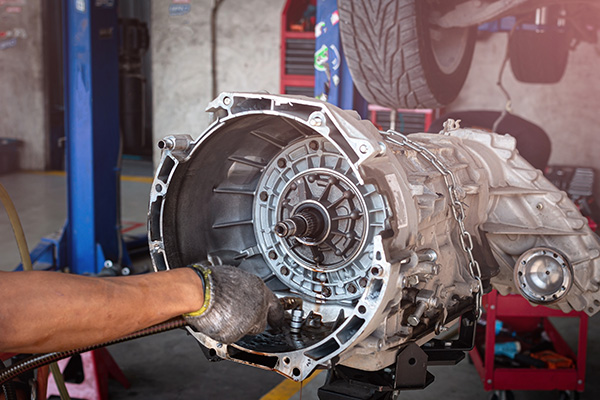
A vehicle's transmission is a complex mechanical system responsible for transferring power from the engine to the wheels. Over time, wear and tear can lead to transmission problems that may jeopardize your vehicle's performance and safety. We'll explore five warning signs that indicate your transmission requires immediate professional attention to prevent further damage and costly repairs. 1. Unusual Noises One of the most apparent indicators of transmission issues is the presence of unusual noises during gear shifts. Any abnormal sounds, from grinding and whining to clunking sounds, could signal underlying problems within the transmission system. Understanding the significance of these noises can help you address potential issues before they escalate into major mechanical failures. 2. Delayed Shifting or Sluggish Response A delay in gear engagement or a sluggish response when accelerating is another red flag that your transmission may ... read more
Posted on 4/28/2024
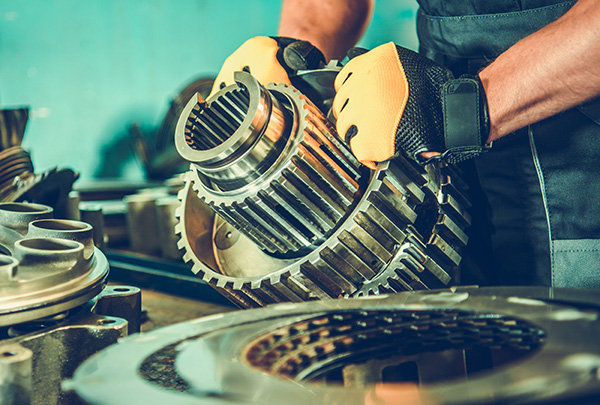
Few components are as critical in the world of automotive repair as the transmission. It is responsible for transferring power from the engine to the wheels and plays a vital role in ensuring smooth and efficient vehicle operation. Understanding the key differences between transmission repair, replacement, and rebuild is important for any vehicle owner to make informed decisions about their maintenance and repair needs. 1. Transmission Repair Transmission repair typically involves fixing or replacing specific components within the transmission system. This approach is often taken when the transmission issues are minor or isolated to particular parts, such as a faulty solenoid or worn-out clutch. Repairing the transmission is usually the most cost-effective option when the damage is limited and can be resolved without extensive labor or parts replacement. ... read more
Posted on 3/28/2024
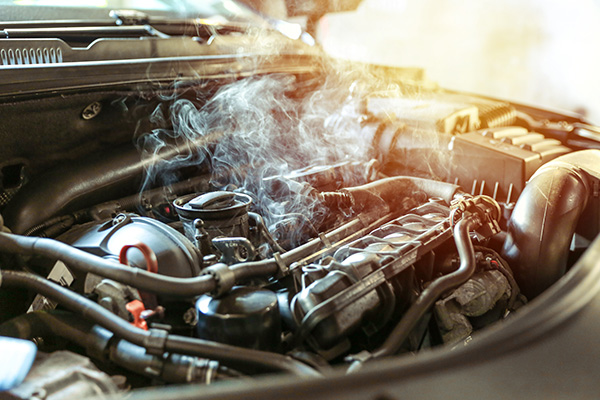
Is your car's cooling system acting up, leaving you puzzled and frustrated? A malfunctioning cooling system can spell trouble for your vehicle, leading to overheating and potential engine damage. But don't - today's article is exactly about that! The Problem At Hand Your car's cooling system regulates engine temperature and prevents overheating. When the cooling system fails to function correctly, it can lead to a range of issues, including engine overheating, coolant leaks, and diminished performance. Common Causes of Cooling System Failures Low Coolant Level One of the most common reasons for a malfunctioning cooling system is a low coolant level. Coolant, also known as antifreeze, is essential for absorbing and dissipating heat from the engine. A low coolant level can result from leaks, evaporation, or improper maintenance, leading to insufficient cooling and potential overheating. Regularly check your coolant level ... read more
Posted on 2/29/2024
.jpeg)
Are you experiencing unusual noises, vibrations, or handling issues with your vehicle? It could be a sign that your suspension bushings need attention. Here are five common indicators that suggest it's time to replace your suspension bushings for smoother rides and improved safety. Stick to the end because we will also share a few answers to common questions! 1. Excessive Noise One of the first signs of worn-out suspension bushings is excessive noise coming from the vehicle's suspension system. You may hear clunking, squeaking, or banging noises when going over bumps or rough roads. These noises indicate that the suspension bushings have deteriorated, allowing metal-to-metal contact and compromising ride quality. 2. Increased Vibrations Worn-out suspension bushings can also lead to increased vibrations felt through the steering wheel, floorboard, or seats. As the bushings lose their ability to absorb shocks and vibrations, you may notice a ... read more
Posted on 1/27/2024
.jpeg)
Power steering is a system that helps drivers steer by augmenting the effort needed to turn the steering wheel. Now, imagine driving without power steering – sounds tough, right? Power steering has evolved from the early days of manual steering. The tech we have today makes driving smoother and more accessible to everyone. But how does it work exactly? Understanding Power Steering Systems Power steering is a game-changer in vehicle handling. At its core, it uses hydraulic or electrical systems to assist in steering the wheels. This technology reduces the physical effort required to turn the steering wheel, especially at lower speeds or when the vehicle is stationary. Types of Power Steering Systems There are mainly two types: Hydraulic Power Steering (HPS) and Electric Power Steering (EPS). HPS uses a pump driven by the engine to provide ... read more
Posted on 12/23/2023
.jpeg)
As you cruise along the road, your car's dashboard serves as a screen of information, but sometimes, a mysterious light can flicker to life and create a sense of uncertainty. The Tire Pressure Monitoring System (TPMS) light is one such enigmatic signal that often leaves drivers pondering its significance - is it a tire or horseshoe? Let's find out. Decoding the TPMS Light The TPMS light resembles a symbol of a tire with an exclamation mark in the center. When this light illuminates on your dashboard, it signifies that the Tire Pressure Monitoring System has detected a deviation in tire pressure. The Importance of TPMS Tire pressure plays a pivotal role in vehicle safety and performance. Underinflated or overinflated tires can compromise traction, handling, and fuel efficiency while also increasing the risk of a blowout. The TPMS is a safety fea ... read more
Posted on 11/28/2023
.jpeg)
Embark on a journey through the heart of automotive innovation as we delve into the differences between inline and V-shaped engines. Unravel the mysteries under the hood and gain a newfound appreciation for the intricacies that power our vehicles. Get ready to discover the nuances that set these engine types apart and see firsthand how they drive our cars forward. Inline EnginesFueling Efficiency and Simplicity Inline engines, characterized by a linear arrangement of cylinders, offer a straightforward design. This layout results in a compact structure, making them a popular choice for everyday vehicles. The simplicity of inline engines translates into ease of maintenance, often requiring less intricate repairs compared to their counterparts. Definition and Design The inline engine configuration involves aligning cylinders in a ... read more
Posted on 10/31/2023

In the world of automobiles, one name stands tall, a symbol of reliability, quality, and a commitment to keeping vehicles running smoothly. NAPA - those four letters evoke a sense of trust among car enthusiasts and everyday drivers alike. "But what does NAPA stand for, and what exactly do they do?" Today, we delve into the fascinating story behind this automotive giant, revealing its origins, purpose, and the key role it plays in the world of vehicles. Where it All Started - the Birth of NAPA NAPA isn't just an acronym - it's a legacy. The letters N-A-P-A originally stood for "National Automotive Parts Association." Founded in 1925, NAPA was born out of the need for a network of reliable and quality-focused auto parts suppliers. It began as a cooperative venture among independent auto parts stores, each committed to serving its local community. The Power of Collaboration One of NAPA's core strengths lies in it ... read more
Posted on 9/29/2023
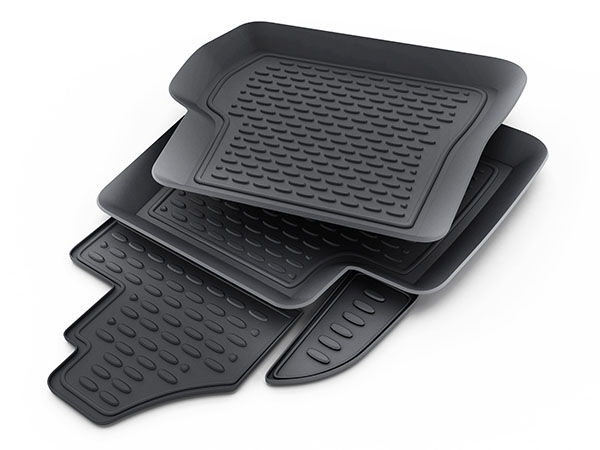
When it comes to car accessories, floor mats may not be the first thing that comes to mind, but they play a vital role in keeping your vehicle clean and stylish. However, a common dilemma for many car owners is choosing between rubber and carpet floor mats. Rubber Floor Mats - The Tough Defender Rubber floor mats are like the superheroes of the car world. They're tough, rugged, and built to withstand the harshest conditions. If you live in an area with harsh winters, muddy trails, or frequent off-road adventures, rubber mats are your trusty sidekicks. One of the significant advantages of rubber mats is their easy cleaning. A quick shake or hose-down is usually all it takes to get rid of dirt, debris, or spilled coffee. They're practically stain-proof. That makes them your go-to option for all-weather protection. Whether it's rain, snow, or mud, they'll keep your car's interior pristine. While rubber mats may not win any fashion awards, they come ... read more
Posted on 8/30/2023
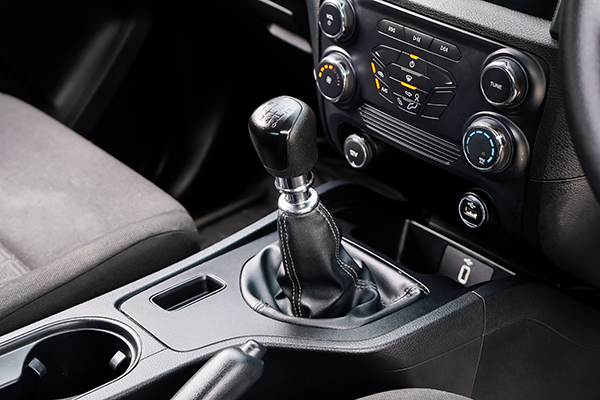
Driving a manual transmission car is an engaging and rewarding experience that allows you to connect with your vehicle on a deeper level. As a manual driver, you have the power to control the gears and feel the pulse of the engine beneath your fingertips. To ensure your driving pleasure lasts for years to come, it's crucial to keep your manual transmission in optimal condition. This not only applies to maintaining it but also to knowing how to operate and use it. 1. Proper Shifting Techniques Mastering the art of smooth and precise gear shifts is at the heart of manual driving. Improper shifting can lead to unnecessary wear and tear on your transmission components. Remember these key points: Engage the clutch fully when shifting gears. Match engine speed (revs) to the appropriate gear before engaging the clutch. Avoid "riding" the clutch pedal, as it can lead to premature clutch wear. 2. Regular ... read more